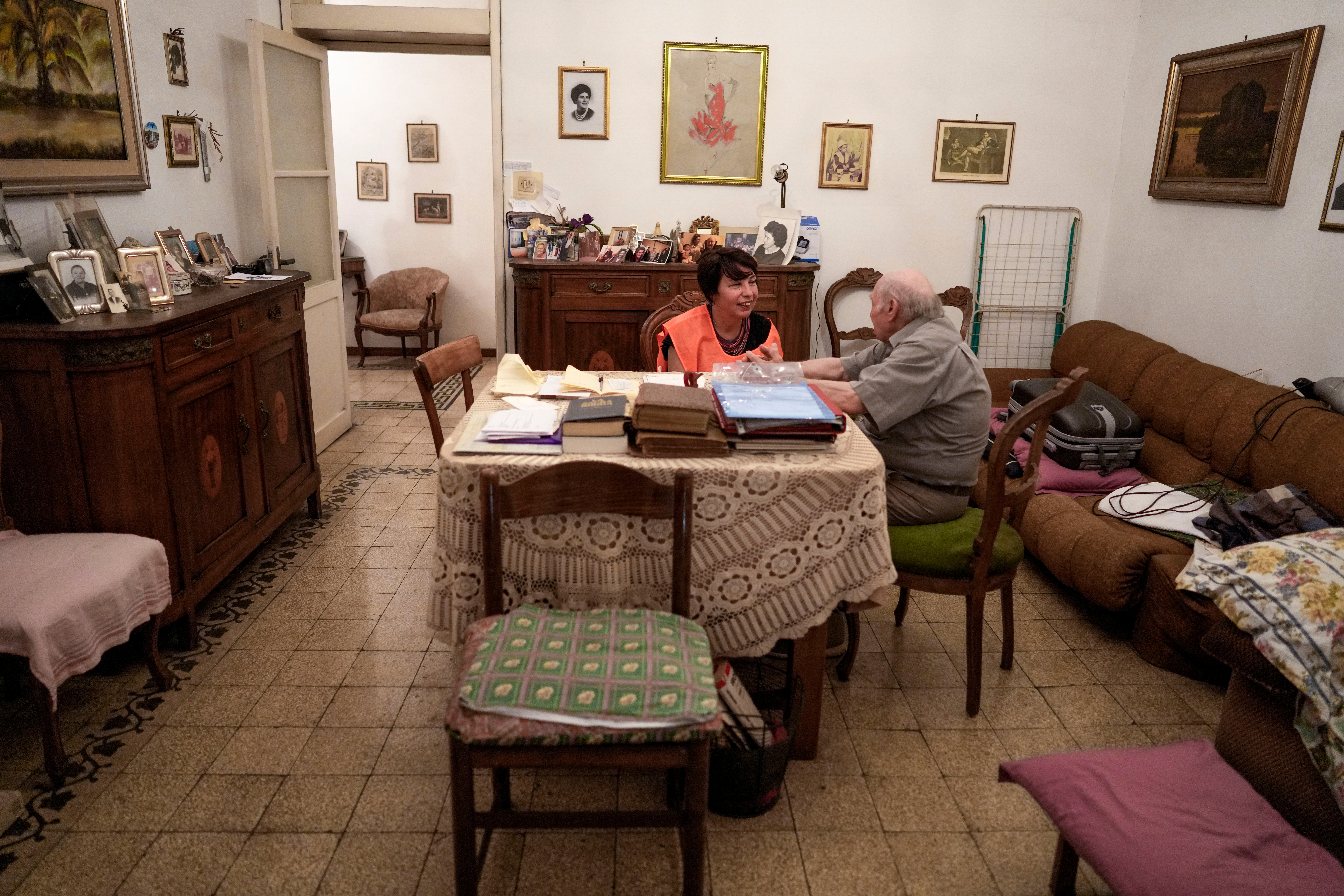CLIMATE GLIMPSE: Here's what you need to see and know today
The intense heat hitting much of the globe this summer can be deadly for the elderly, putting a premium on volunteers who find time to check on the vulnerable

Your support helps us to tell the story
From reproductive rights to climate change to Big Tech, The Independent is on the ground when the story is developing. Whether it's investigating the financials of Elon Musk's pro-Trump PAC or producing our latest documentary, 'The A Word', which shines a light on the American women fighting for reproductive rights, we know how important it is to parse out the facts from the messaging.
At such a critical moment in US history, we need reporters on the ground. Your donation allows us to keep sending journalists to speak to both sides of the story.
The Independent is trusted by Americans across the entire political spectrum. And unlike many other quality news outlets, we choose not to lock Americans out of our reporting and analysis with paywalls. We believe quality journalism should be available to everyone, paid for by those who can afford it.
Your support makes all the difference.When intense heat hits, the elderly are often its first targets. As southern Europe bakes under a heat wave, Associated Press photographer Andrew Medichini recorded Sant'Egidio Catholic group volunteer Michela Tassani checking up on 98-year-old Armando Frajegari at his home in Rome on Wednesday. Temperatures in many Italian cities were closing in on 40 degrees Celsius (104 Fahrenheit).
Alongside the heat, firefighters in Greece continued battle Thursday with wildfires near Athens that have prompted days of evacuations. Aircraft and crews from other countries were heading to join the fight. Heat in southern Greece was expected to grow worse later this week, approaching 44 Celsius (111 Fahrenheit).
Here's what's happening related to extreme weather and the climate right now:
—In Texas, crushing heat is raising concern for families with loved ones in state prisons that lack air conditioning. One woman blames her son’s death on excessive heat, Juan A. Lozano reports.
—As destructive floods hammer different parts of the globe, scientists say they have something in common: Climate change that has storms forming in a warmer atmosphere with the result that extreme rainfall is more frequent now. And they say additional warming will make it worse. Isabella O'Malley, Brittany Peterson and Drew Costley explain.
— The world's two biggest climate polluters, China and the United States, met in Beijing to talk about climate change. China's vice president told U.S. climate envoy John Kerry that the country is willing to work with Washington to stem global warming, but needs the U.S. to respect its views on a range of issues. More here.
— Nigeria is looking at a food security crisis driven by conflict and climate change. Russia's war with Ukraine imperils shipments of wheat to the West African nation, and a vicious heat-and-rain cycle worsened by climate change is decimating yields for Nigeria's own farmers, Taiwo Adebayo reports.
—As Canada's summer of wildfires stretches on, Indigenous communities are among those hardest-hit — far more likely to be evacuated than their share of the population suggests. Tammy Webber and Noah Berger explain.
—India, one of the most populous and climate-vulnerable countries, is thinking and talking a lot about transitioning to cleaner energy. Anupam Nath and Sibi Arasu report on how India is searching for key minerals at home.
___
QUOTABLE:
“They’re cooking our inmates in the Texas prison system,” said Tona Southards Naranjo, who believes her son, Jon Southards, died last month due to high heat in a Huntsville prison.
___
Associated Press climate and environmental coverage receives support from several private foundations. See more about AP’s climate initiative here. The AP is solely responsible for all content.